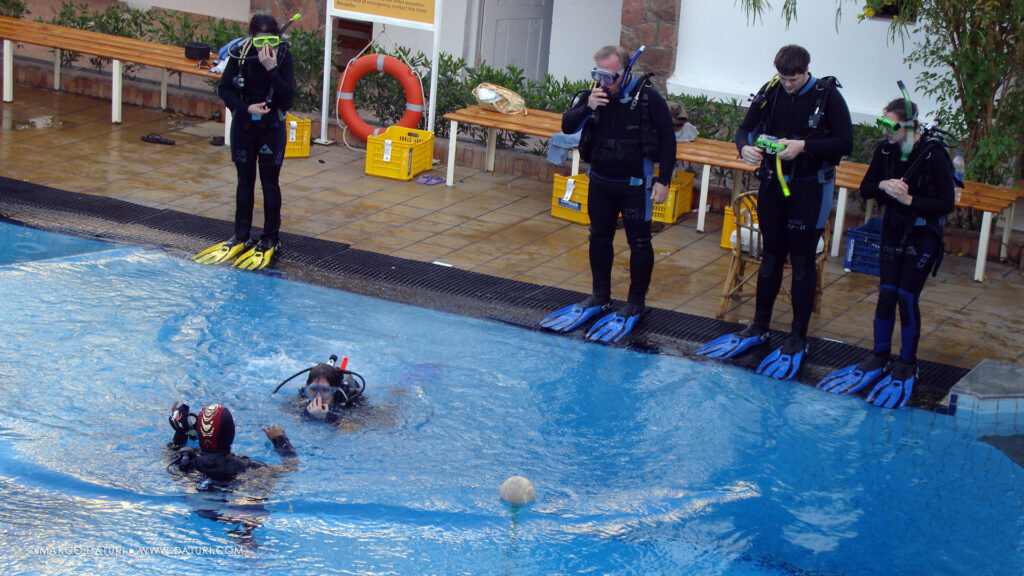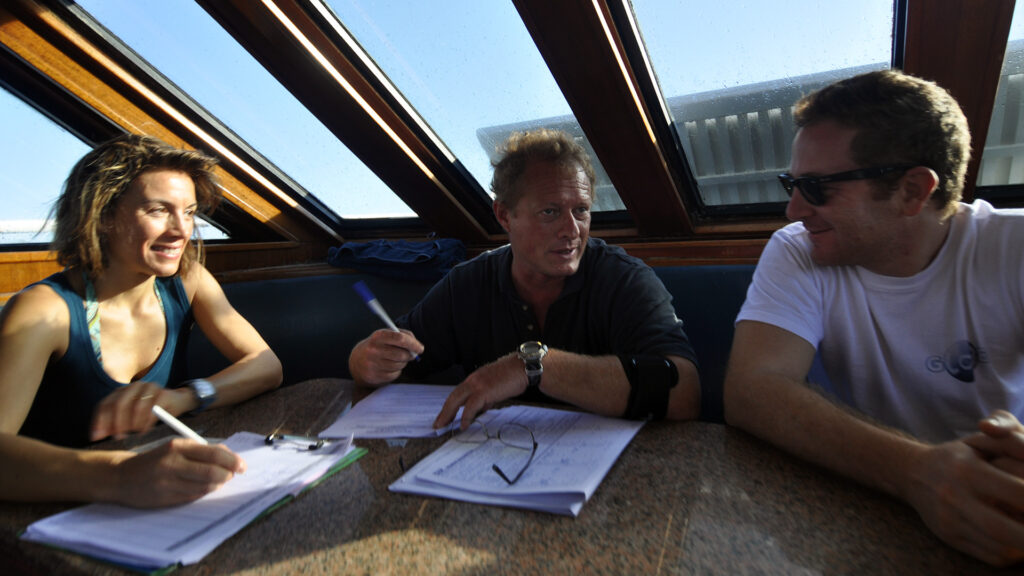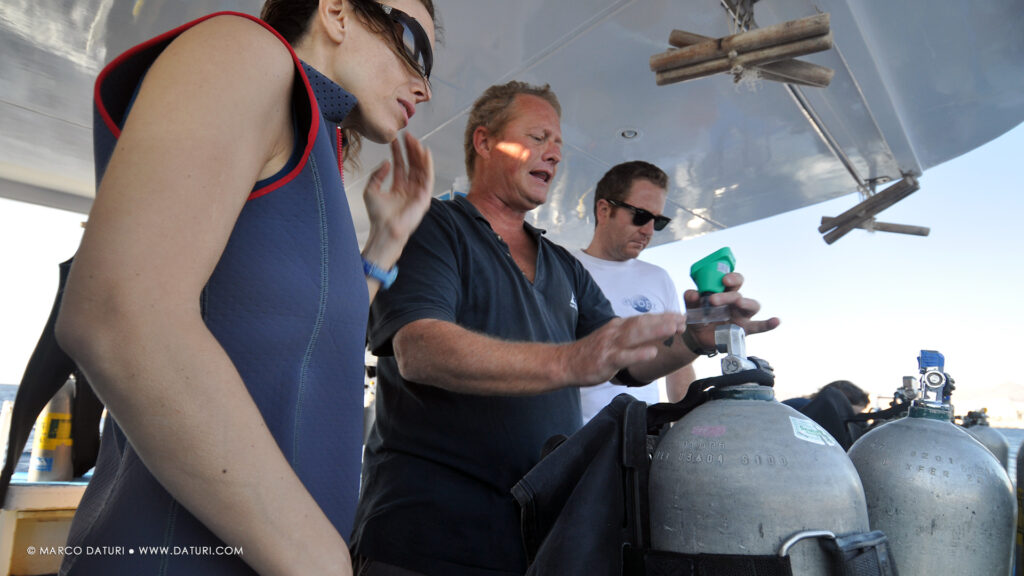Snippet
Choosing a qualified scuba diving instructor is crucial for safe and enjoyable training. Ensure they have recognized certifications, extensive experience, positive reviews, and a strong focus on safety protocols.
Choosing a good scuba diving instructor is crucial for receiving safe and enjoyable training. However, it can be challenging for beginners to identify a competent instructor.
A personal experience
A few years ago, during one of our regular diving enthusiast gatherings in Milan, I met a girl who joined us for a dive in Tuscany the following Sunday. She was a novice and, naturally, not very skilled: she didn’t have her own equipment and didn’t even know how to set up the regulator. Yet, within a few months and after only a limited number of dives, she qualified to become an instructor. It was hard for me to believe she had completed over a hundred dives, and frankly, I wouldn’t have entrusted my son’s first certification to her. This story isn’t unique; many others rush through accelerated professional paths driven by enthusiasm.

The importance of experience
The number 100 is the minimum number of dives, varying slightly between organizations, that should ensure aspiring instructors have significant practical experience and a thorough understanding of diving techniques and safety. However, 100 dives are not many, and in our opinion, far too few to gain the necessary experience to be a good instructor.
Risks of choosing the wrong scuba instructor
Choosing an inadequate scuba diving instructor can have serious consequences, from a lack of preparedness in emergency situations to personal safety risks. Safety should always be the top priority in diving, and an unqualified instructor can jeopardize lives by providing superficial or incorrect training.
A good instructor should communicate correct techniques and safety protocols clearly and comprehensively. They must also be able to manage underwater emergencies calmly and competently, preparing their students to do the same. This preparation is crucial as the underwater environment can be unpredictable and sometimes dangerous.

Key parameters for choosing a scuba instructor
Here are some key parameters to consider when looking for a scuba instructor:
- Certifications: ensure the instructor is certified by a recognized organization. Certifications should be up-to-date and include any specializations.
- Experience: an instructor with many years of experience and a high number of dives can offer more in-depth training and better handle diverse or unexpected situations. Ideally, an instructor should have at least a thousand dives under their belt, not just 100.
- Affiliated school: the diving school an instructor is affiliated with can be an important indicator of their competence and quality. A reputable school is unlikely to risk its reputation by hiring a poor or dangerous instructor. The reputation of the dive center can reflect the quality and safety standards it promotes.
- Approach to safety: safety must be the top priority. Evaluate the instructor’s approach to diving safety. Ask about emergency procedures, equipment maintenance, and safety management during lessons.
- Teaching method: every instructor has their own teaching style. It’s ideal to attend a class or speak with former students to see if their teaching method suits your learning style. Check if the instructor is patient, clear in explanations, and supportive.
- Reviews and references: look for online reviews or ask for references from the instructor’s former students. Past experiences can give insight into how the instructor manages lessons and interacts with students.
- Value for money: always consider the course costs and what’s included in the price, such as equipment, teaching materials, and the number of dives. A more expensive course might be justified by more individual attention or better-quality equipment.
- Availability and flexibility: assess the instructor’s availability to answer questions outside of class hours and their flexibility in scheduling theory and practical sessions.
- Personal interaction: it’s important to feel comfortable with the instructor. Learning to dive can be challenging, so having a relationship based on trust and mutual respect is essential.
- Communication skills and student rapport: a good instructor must communicate clearly and effectively, ensuring that all students understand the techniques, safety procedures, and lesson objectives. Empathy and patience are essential qualities in a scuba diving instructor.

How to find a scuba diving instructor
Given the importance of finding a qualified and reliable scuba instructor, how do you go about it?
One of the best ways to start your search is by visiting the websites of organizations that offer directories of certified instructors and dive centers in your area or desired destinations. These sites often allow you to search by location and specialization, making it easier to find an instructor that suits your specific needs.
Other useful resources include scuba diving forums and social media groups where members of the diving community share experiences and recommendations.
Finally, visiting local dive centers and speaking directly with instructors can provide a firsthand perception of their teaching style and professionalism, as well as allow you to evaluate their equipment and facilities.
By dedicating time to research and select a qualified instructor you can significantly enhance your diving learning experience and ensure your safety.
